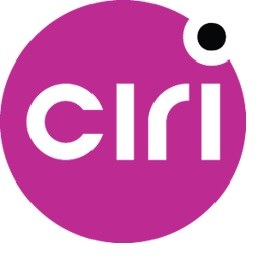Janvier 2023
|
Jeudi 12/01/2023 Salle SDT CRC Séminaire Externe |
« Molecular mechanisms of division plane control in plants » | |
|
|
Katharina BÜRSTENBINDER (Leibniz Institute for Plant Biochemistry, Halle)
Host : Marie-Cécile Caillaud
|
|
|
Lundi 16/01/2023 Salle SDT CRC Séminaire Externe |
« Role of pectins in growth-defense trade-offs » | |
|
|
Aline VOXEUR Institut Jean-Pierre Bourgin, INRAe)
Host : Benoit Landrein
|
|
|
Vendredi 20/01/2023 Amphi Pasteur Séminaire Externe Conférences "Le bureau de la SFI au CIRI" |
« Follicular lymphoma reveals its secrets through a genetic mouse model » | |
|
|
Noushine MOSSADEGH-KELLER (Vice-Présidente SFI) PhD/Ingénieure de Recherche CNRS, Centre d’Immunologie de Marseille Luminy
|
|
| 09h30 | « Pivotal role of IL-27 in macrophages polarization. Application in cancer immunother » | |
|
|
Julie TABIASCO (Secrétaire Générale SFI)
Chargée de recherche INSERM, Institut toulousain des maladies infectieuses et inflammatoires (INFINITY)
|
|
|
10H00
|
« Combined germline and somatic mutations as genetic causes of Autoimmune lymphoproliferative syndrome (APLS) » | |
|
|
Aude MAGERUS (Past Trésorière SFI)
Chargée de Recherche INSERM U1163 Institut Imagine Paris |
|
|
10H30 |
« Howard Ricketts et le 2e postulat de Koch » | |
|
|
.Hans YSSEL (Past president SFI)
Directeur de Recherche INSERM |
|
|
11H00 |
« Translating immune regulation into patients immune therapy » | |
|
|
Daniel OLIVE (Président SFI)
PUPH, Centre de Recherches en Cancérologie de Marseille |
|
| 11H30 | « STING controls inflammation via inhibitory ITAM pathway » | |
|
|
Renato MONTEIRO (Past president SF)
PUPH, Centre de Recherche sur l’Inflammation (CRI), Université Paris-Diderot |
|
|
Lundi 23/01/2023 IBCP Salle Conf Séminaire Externe |
“ TBA ” | |
|
|
Prof. Arne MÖELLER (Department of Structural Biology at the University of Osnabrück)
Hôte : Vincent Chaptal
|
|
|
Mardi 24/01/2023 Amphi Pasteur Séminaire Externe |
« RNA queuosine modification and response to antibiotics in Vibrio cholerae » | |||
 |
Dr. Zeynep BAHAROGLU (Institut Pasteur - Unité "Plasticité du Génome Bactérien" - Département Génomes et Génétique)
Hôte : Karen Moreau
Antibiotic overuse and misuse in clinical and farming contexts contribute to resistance development, during treatment of infection, but also as antibiotic gradients in soil and water, the natural reservoir of many bacteria. Using such non lethal antibiotic doses, we have linked 23 tRNA and rRNA modification enzymes with specific responses to various antibiotics in V. cholerae. We further studied the molecular mechanisms underlying this specificity in the absence of tgt/queuosine (Q) modification. We showed that (i) the absence of Q impacts tyrosine codon decoding and leads to translational reprogramming in response to stress. (ii) A protein's codon usage bias can influence its translation in a Q modification dependent way. (iii) Candidate transcripts subject to modification tunable translation can be identified in silico based on their codon content in bacteria. Our results highlight the existence of an epitranscriptomic and translational control of the bacterial response to antibiotic stress.
|
|||




